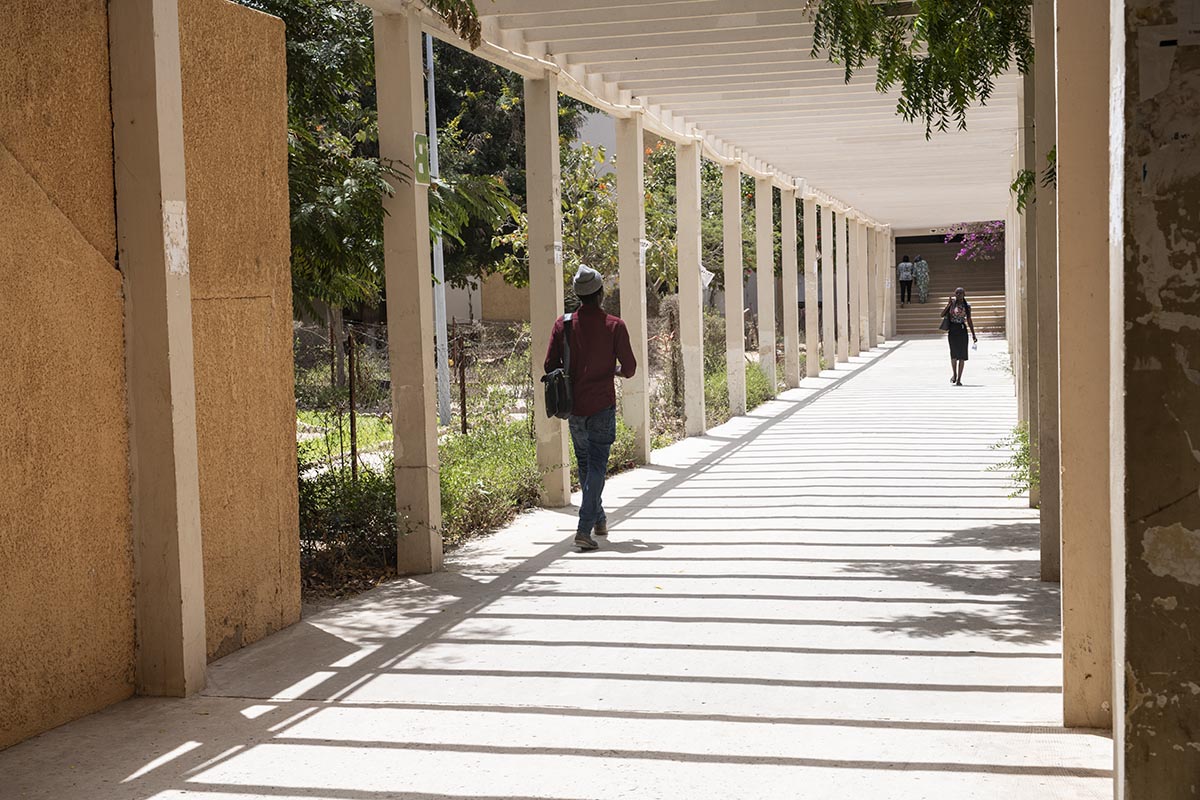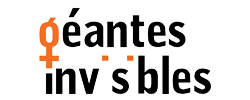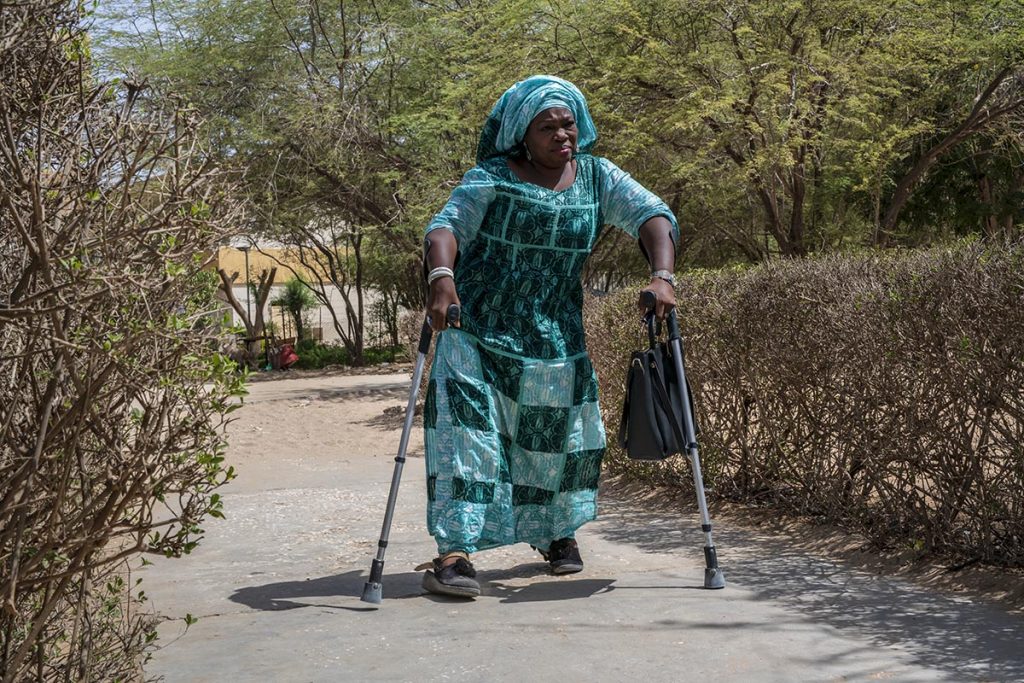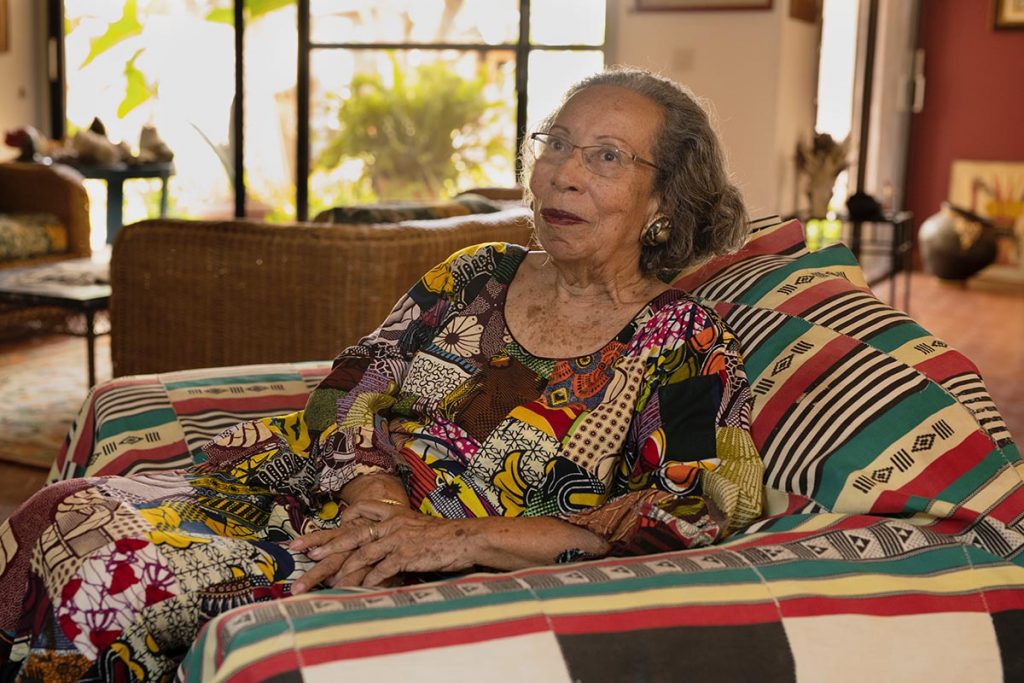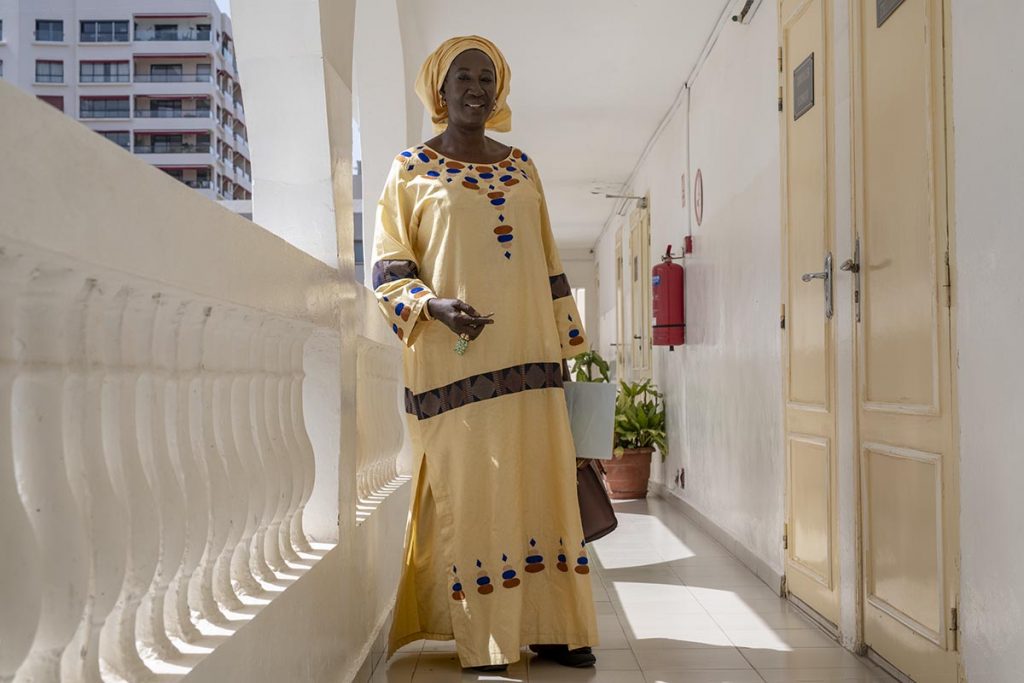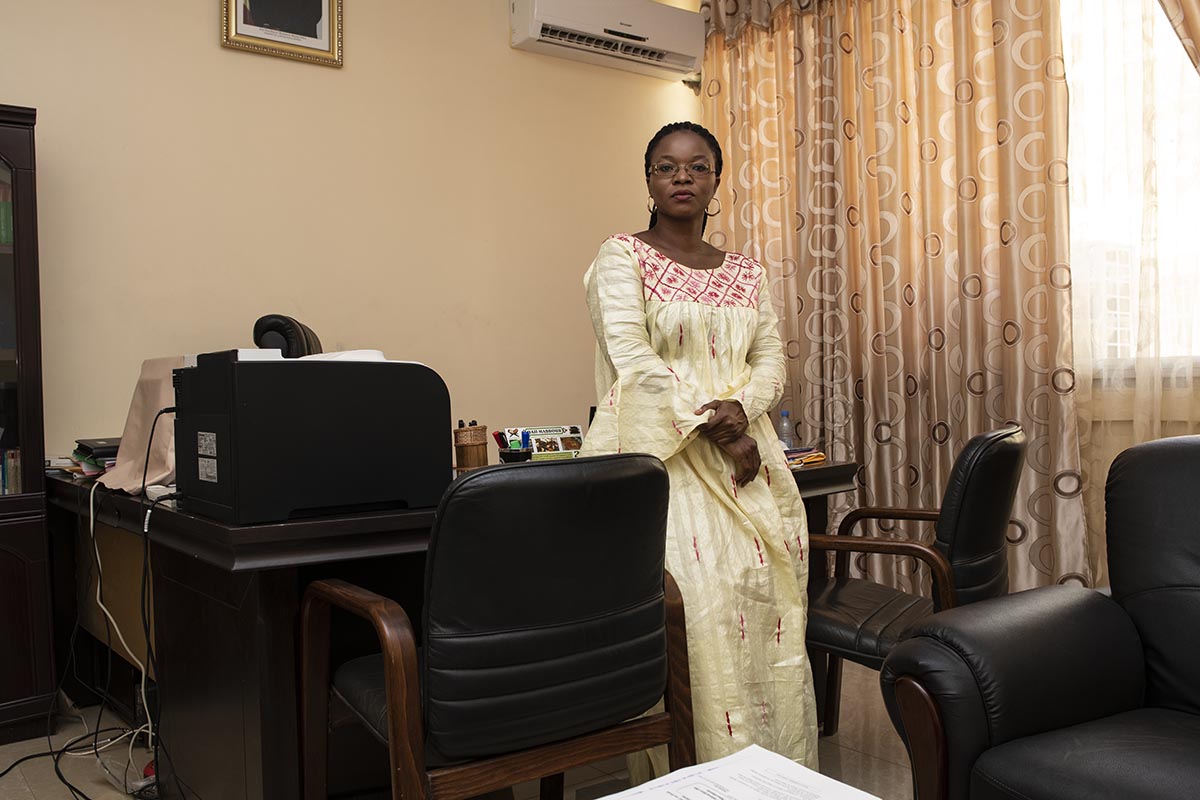
Mame Penda Ba
Of science and of Pragmatism
A Giant of political and social sciences, visionary, engaged in a revolution in academic thinking in Africa.
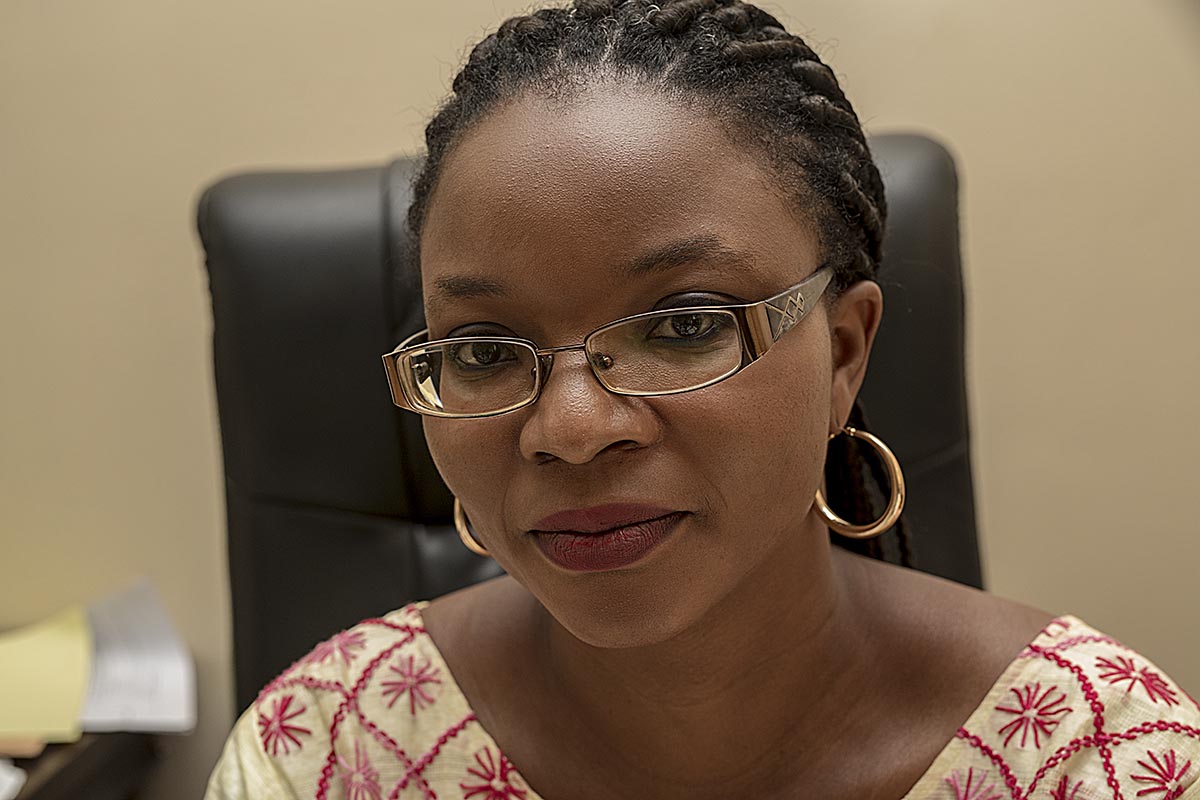
Aged 41, this mother of three is from Saint-Louis although she was born and educated in Dakar, where her parents were civil servants. After her baccalaureate, she went to France for two preparatory classes in Philosophy and Letters which enabled her to continue her studies at Sciences Po Paris and obtain her doctorate in Political Science. Since 2011, she graduated in Political Science from CAMES.
Mame Penda Ba, professor-researcher at the University Gaston Berger of Saint-Louis, is the first woman to be aggregated in Political Science in Senegal.
She is currently the Deputy Director of the Faculty of Law and Political Science at the University of Saint-Louis.
Her willingness to think about people and societies led to the creation of the Laboratory for the Analysis of African Societies and Diasporas (LASPAD) of which she has been the Director in the last five years. From the outset, its characteristic involved a multidisciplinary way of thinking that aims at trans-disciplinarity.
The laboratory was founded with two other academics, bringing together three fields: Economics, Anthropology, History and Political Science to produce new concepts. “We wanted to reflect on African societies and on the nature of power (at local, national, international level) from the social sciences in general”, but especially from the hard sciences (mathematics, computer science, etc.). By transcending the classical cleavages of disciplines, this very young laboratory produced a collective research that allowed for results inscribed in a world in constant evolution.
Mame Penda Ba is part of the small community of local political scientists who Africanise the content of their teaching. The community also works with the resources of the prestigious Center for Linguistic and Historical Studies by Oral Tradition (CELHTO) based in Niger in order to go far back in the history of political ideas. For her, the role of the African University in this field is to “give voice and presence to unexpected African authors, alongside others more classical ones”.
According to her, political sciences respond to a need to think about fundamental questions such as: “How our societies, despite extremely strong and powerful shocks, do not fundamentally lose the memory of what they have been, while having to deal with the foreign, transforming it into endogenous? »
“These societies are going to transform themselves in an accelerated way. And we, Africans, are forced to reflect on the kind of human society that is being created. Through technological issues, we deal with philosophical, anthropological and economic questioning. »
Always ready to change perspectives, this teacher-researcher integrates perplexity, doubt and circumspection into her methodology with students. For example, in the study of Democracy: “in the work of perfecting this system proposed to us, Africa and especially African youth have something to say. It is perhaps in the richness of our cultures that we will find ways to overcome the tensions of this system”. This is how she would like to turn the Senegalese University into a university that addresses concerns of the population at large, focusing more research into field studies and finding concrete solutions.
